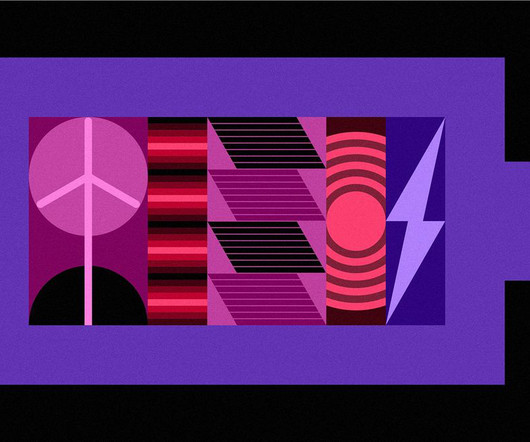NASA selects proposals for advanced energy storage systems for future space missions: silicon-anode Li-ion and Li-S
Green Car Congress
AUGUST 8, 2014
NASA has selected four proposals for advanced Li-ion and Li-sulfur energy storage technologies that may be used to power the agencys future space missions. High Energy Density and Long-Life Li-S Batteries for Aerospace Applications, submitted by the California Institute of Technology in Pasadena. Batteries'

















Let's personalize your content